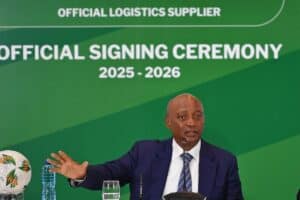The Russia-Africa summit in St Petersburg sparked debate among political analysts. Some are skeptical about its impact, while others see opportunities.

While some political analysts are sceptical about the two-day Russia-Africa summit in St Petersburg yielding any spinoffs for the continent, an independent expert maintains African leaders could turn the meeting in their favour regarding agriculture and technology advancement.
This against the backdrop of:
- The protracted war in Ukraine;
- Strained US-SA relations over SA’s adoption of a nonaligned stance on the war;
- President Vladimir Putin’s withdrawal from the Black Sea grain deal that would have ensured the safe export of Ukrainian grain to Africa;
- Concerns over the Russian Wagner Group’s involvement in Niger’s regime change; and
- The continued stay of former president Jacob Zuma in Russia despite the Constitutional Court upholding a ruling that he should return to prison.
Political analyst Sandile Swana said the summit, attended by President Cyril Ramaphosa, had “great prospects of success if African leaders know what they’re looking for in Russia”.
He said: “Africans can benefit from the fact that Russia has one of the most advanced agricultural technologies – an area in which we can form partnerships to develop local agriculture.
“Russia is self-sufficient in all staple foods and Africa should learn how to enjoy food security – growing crops at home.
READ: Grain, weapons and energy: Russia’s presence in Africa
“Due to bombings in Ukraine, Africa should not complain about starving when we have 60% of the world’s arable land.
“African leaders can also focus in the area of energy and electrification of the continent, with Russia being very strong in the field of science and technology.
“Leaders can also focus on the development of medicine, with most African hospitals being poorly equipped.
“In the current geopolitical situation where the US wants to impose its culture, American thinking on issues… should push Africa to strengthening ties with Russia.”
Meanwhile, Wits University international relations visiting professor John Stremlau said the poor turnout of African leaders who attended this year (a total of 17) compared with 2019 (43) “shows they have voted with their feet, without any pressure from Western countries”.
Support Local Journalism
Add The Citizen as a Preferred Source on Google and follow us on Google News to see more of our trusted reporting in Google News and Top Stories.






